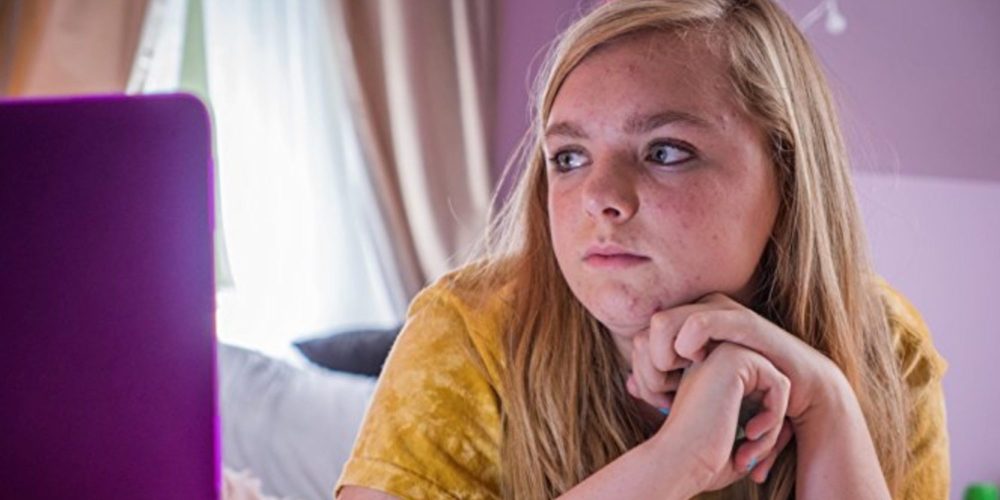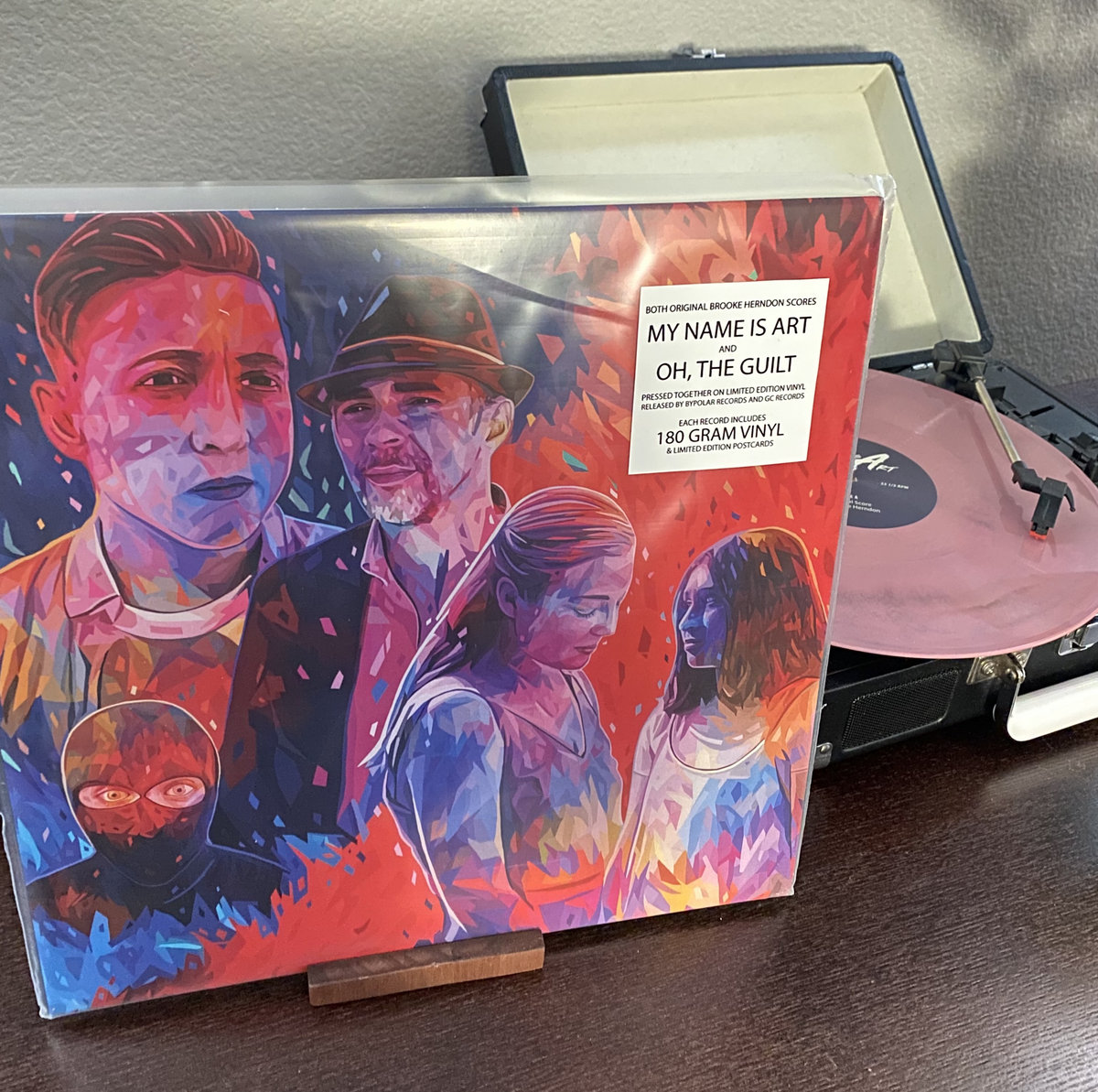Kayla Day (Elsie Fisher) is 13 years old and enduring her final weeks of eighth grade. Peppered throughout the movie are cutaways of the YouTube videos Kayla creates giving other young adults like herself advice on how to deal with life and navigate social interactions. She rambles and repeats herself as an eighth grader would do, but as she talks to the camera, you get a strong sense of how close the topic is to her heart. This is because the real-life Kayla—the one that has to interact with her peers instead of a screen—struggles with social anxiety and shyness. These qualities are compounded by a scene where she extols the virtues of confidence to her small pool of YouTube followers immediately followed by winning the ‘Most Quiet’ award from her peers, an ‘award’ she grudgingly accepts because, as she has just told us, Kayla actually “has a lot to say.”
We continue to watch Kayla as her week progresses and she stumbles through increasingly uncomfortable situations—a pool party she wasn’t really invited to, a crush on an aloof popular boy, conversations about sex, a high school shadow day and a subsequent hang-out with her high-schooler counterpart and her friends. Throughout all of it, we see things through Kayla’s eyes and feel every butterfly in her stomach.
Playing off Kayla is her single father, Mark (Josh Hamilton), who is dorky and well-meaning, but hovers and worries over his daughter too much, to the point where she finds him mortifying to be around, as 13-year-olds do. This leads to plenty of interactions—both hilarious and heartwarming—as the constantly bemused Mark tries to make sense of his daughter’s flighty behavior.
This dichotomy made for a really interesting experience for myself in particular, as I related personally to Kayla growing up—a plain jane who has a lot to say but tends to pull to the outskirts in groups like a ghost—yet I could plainly see how absurd the whole thing looks from Mark’s point of view. In real life, I’m halfway between the age of both father and daughter, so watching Mark try not to smile as his daughter explains that he must both drive her to the mall in silence and also not be weirdly silent is just as relatable to me as Kayla dramatically burning her sixth grade ‘time capsule’ because she believes she has failed to live up to the expectations she set for herself.
There are a few scenes that make the audience anxious and uncomfortable, none more so than a scene involving a high school boy alone with Kayla in the back of a car. You could tell by the collective intake of breath amongst the audience that everyone knew where this was going. In some ways, you could tell even Kayla understood, but the innocence of youth leads us all into situations we are not equipped to deal with. Thankfully, we have learned enough about Kayla by this point to trust her to make the right decisions and even though Kayla is emotionally wrecked by the encounter, we as viewers are able to breathe a sigh of relief by movie’s end.
Cringe humor can often be too much for someone to bear. I have my limit, but the ability to look at this movie through the eyes of an adult who has put a lot of this behind her helped turn this movie’s most awkward moments into endearingly comical ones. I saw this movie in a relatively small theater and some moments had the audience laughing so loud we subsequently missed some of the dialogue. Burnham strikes the perfect balance between awkwardness and humor and his characters are so real that it is easy to get immersed in the movie.
The only issue with this movie’s commitment to reality is that the combination of course language (relatively light use) and sexual situations (even without nudity) earned this movie an R rating, which is a huge mistake that the production company and theaters are already regretting. Some things are more important than a few curse words; this movie is extremely accessible to both generation Z and their parents and both could benefit from seeing things through the other’s eyes. I would recommend any parent with preteen kids to consider seeing it—alone or with their kid—to encourage a dialogue, even if it means having to relive the most agonizing two years of your youth.









